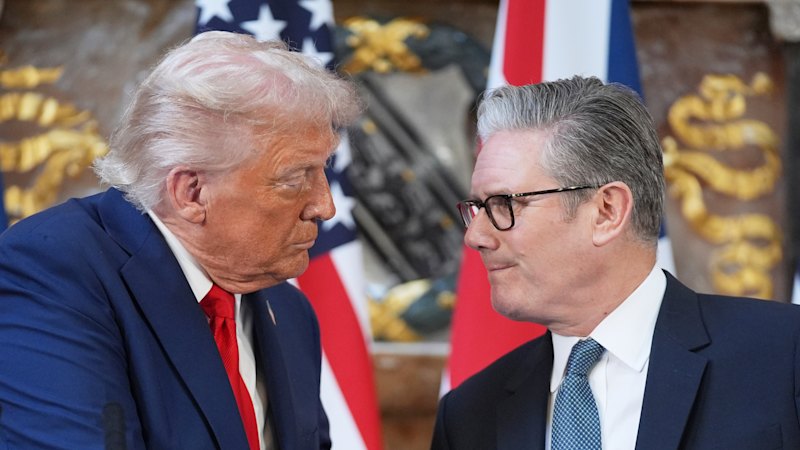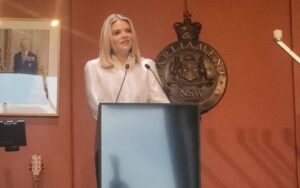
US President Donald Trump signed a significant science and technology agreement with the United Kingdom on September 28, 2023, during his state visit. The deal, described by Trump as historic, aims to bolster tech investment between the two countries. Prime Minister Keir Starmer and Trump participated in a roundtable discussion with business leaders before engaging in private talks that covered pressing global issues, including the conflicts in Ukraine and Gaza.
During a joint news conference after the signing ceremony at Chequers, a historic manor house northwest of London, Starmer emphasized the importance of the transatlantic relationship, stating, “While we shape this bond for a new era, the fundamentals have not changed.” Trump expressed gratitude for the warm British hospitality, praising King Charles III and Queen Camilla as “two fantastic people.”
The signing ceremony marked a high point in a visit characterized by ceremonial grandeur, including a lavish banquet hosted by the royal family. The reception underscored the efforts by UK officials to strengthen ties with the US, particularly in light of ongoing global tensions. Trump’s typically unscripted demeanor was notably subdued, as he adhered closely to the ceremonial proceedings.
At the signing event, Starmer affectionately referred to Trump as “my friend, our friend,” highlighting a mutual respect between the two leaders. The agreement aims to attract substantial investment from US technology firms, including a pledge of £150 billion (approximately $215 billion) in investments from US companies, with Blackstone committing £90 billion over the next decade.
Investment Opportunities and Challenges
The agreement includes ambitious plans for investment in artificial intelligence, quantum computing, and nuclear energy. It is expected to create thousands of jobs and enhance economic ties. UK officials noted that American companies are set to invest £31 billion (around $42 billion) in the UK’s AI sector, with Microsoft contributing $30 billion toward projects that include the development of Britain’s largest supercomputer.
Despite the optimism surrounding the tech agreement, challenges remain in discussions over tariffs. Talks to eliminate the 25% duties on steel and aluminum have stalled, despite initial assurances from May that these issues would be resolved quickly. The British Chambers of Commerce has warned that failure to address these tariffs would be met with disappointment from the UK steel industry.
Private discussions between Trump and Starmer also reportedly addressed the ongoing conflicts in Ukraine and the Middle East. The UK government has taken a firmer stance on Israel’s military actions in Gaza, describing its recent offensive as “utterly reckless and appalling.” Starmer has announced plans for the UK to formally recognize a Palestinian state, potentially within days, a move that may complicate US-UK relations as Trump has indicated he would penalize Canada for similar actions.
Broader Implications and Future Outlook
The visit comes at a time when UK officials are increasingly critical of Israel’s conduct, juxtaposed against Trump’s historical support for Israeli policies. After expressing frustration with Russian President Vladimir Putin regarding the ongoing war in Ukraine, Trump’s comments suggested that the resolution lies with Ukrainian President Volodymyr Zelensky, stating, “He’s going to have to make a deal.”
Amid this backdrop, Starmer faces scrutiny over domestic challenges, including economic sluggishness and political pressures. Just prior to Trump’s visit, he dismissed the UK ambassador to the US, Peter Mandelson, due to the envoy’s past connections with convicted sex offender Jeffrey Epstein. This controversy adds an additional layer of complexity to the state visit.
Leslie Vinjamuri, president of the Chicago Council on Global Affairs, suggested that the dynamics of the visit may be more challenging for Starmer than for Trump, who benefits from the ceremonial attention in the UK. She noted, “This plays well at home, it plays well abroad.”
As the discussions unfold, the outcomes of this high-profile meeting will likely have lasting implications for UK-US relations, particularly in trade, technology, and international diplomacy.







